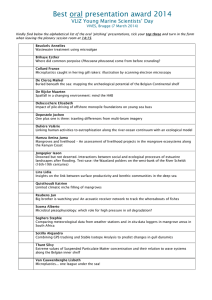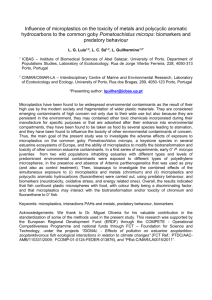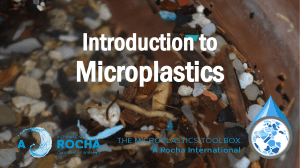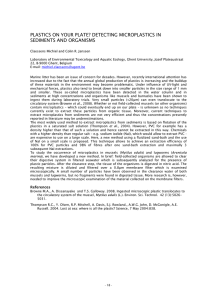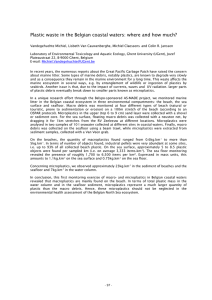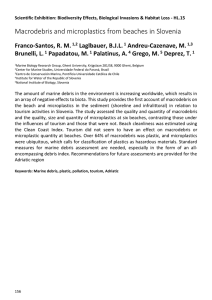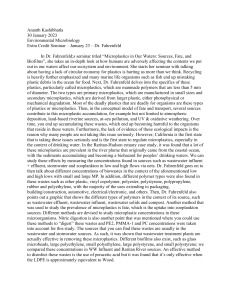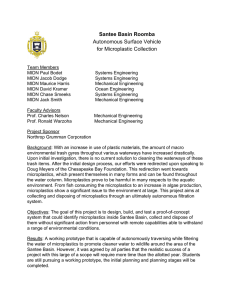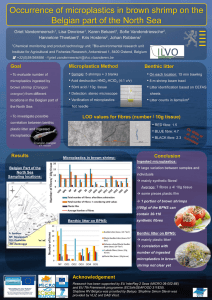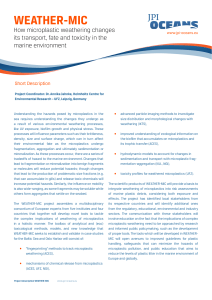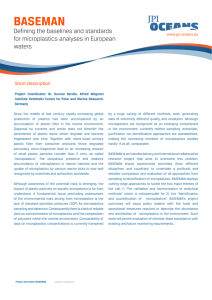10685_Zhang
advertisement
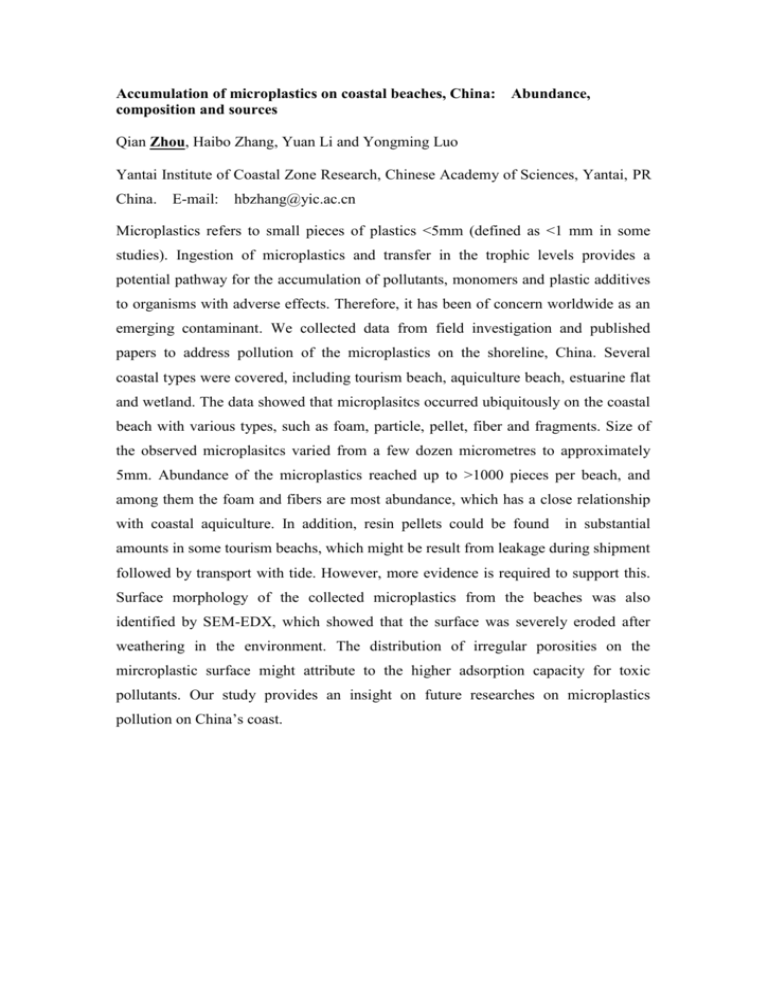
Accumulation of microplastics on coastal beaches, China: Abundance, composition and sources Qian Zhou, Haibo Zhang, Yuan Li and Yongming Luo Yantai Institute of Coastal Zone Research, Chinese Academy of Sciences, Yantai, PR China. E-mail: hbzhang@yic.ac.cn Microplastics refers to small pieces of plastics <5mm (defined as <1 mm in some studies). Ingestion of microplastics and transfer in the trophic levels provides a potential pathway for the accumulation of pollutants, monomers and plastic additives to organisms with adverse effects. Therefore, it has been of concern worldwide as an emerging contaminant. We collected data from field investigation and published papers to address pollution of the microplastics on the shoreline, China. Several coastal types were covered, including tourism beach, aquiculture beach, estuarine flat and wetland. The data showed that microplasitcs occurred ubiquitously on the coastal beach with various types, such as foam, particle, pellet, fiber and fragments. Size of the observed microplasitcs varied from a few dozen micrometres to approximately 5mm. Abundance of the microplastics reached up to >1000 pieces per beach, and among them the foam and fibers are most abundance, which has a close relationship with coastal aquiculture. In addition, resin pellets could be found in substantial amounts in some tourism beachs, which might be result from leakage during shipment followed by transport with tide. However, more evidence is required to support this. Surface morphology of the collected microplastics from the beaches was also identified by SEM-EDX, which showed that the surface was severely eroded after weathering in the environment. The distribution of irregular porosities on the mircroplastic surface might attribute to the higher adsorption capacity for toxic pollutants. Our study provides an insight on future researches on microplastics pollution on China’s coast.
